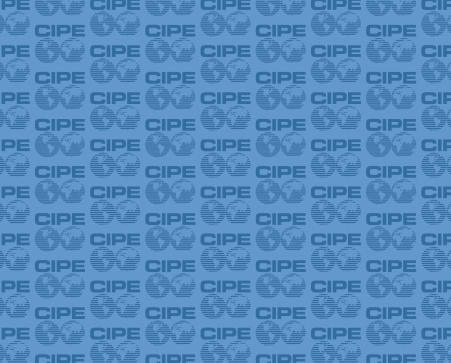
Corruption is a direct threat to a country’s democratic emergence and an obstacle to a country’s democratic development. In Thailand, for example, corruption was the stated justification for the military’s ousting of an elected government in 2006 and the Supreme Court’s sacking of another elected government in 2008. Competing allegations of corruption were the main drivers of nation-crippling unrest in the country.
In Thailand, as in other new and struggling democracies across the globe, if democracy is to mature and fully take root, more is required than just the ability to vote.
In countries including Russia, Thailand, Columbia and Serbia, CIPE is helping the private sector mobilize to take proactive steps to reduce corruption. These programs demonstrate the transformative impact that private sector Collective Action can have on a country’s fight against corruption.
In these countries, many segments of society feel shut out of the democratic process, not due to the lack of elections, but because they question the accountability and performance of their governments. They continue to witness the same social and economic ills that defined earlier, undemocratic times – ills such as corruption and the perception that political and corporate elites operate behind closed doors making decisions that are not in the public interest.
Members of these disaffected populations can acquire a distorted understanding of what democracy really is, making them susceptible to populist appeals by demagogues couching authoritarian policies in democratic rhetoric. For democratic ideals, expectations and practices to fully take root in a country, all segments of society need to experience the tangible benefits to their daily lives that only democracy can yield.
In short, democracy must deliver. And few issues pose a more direct challenge than corruption.
CIPE’s latest Economic Reform Feature Service article outlines the key concepts and lessons from CIPE’s successful anti-corruption programs, and illustrates various collective action approaches and strategies.
John Morrell is Program Officer for Asia at CIPE.
Published Date: September 10, 2013